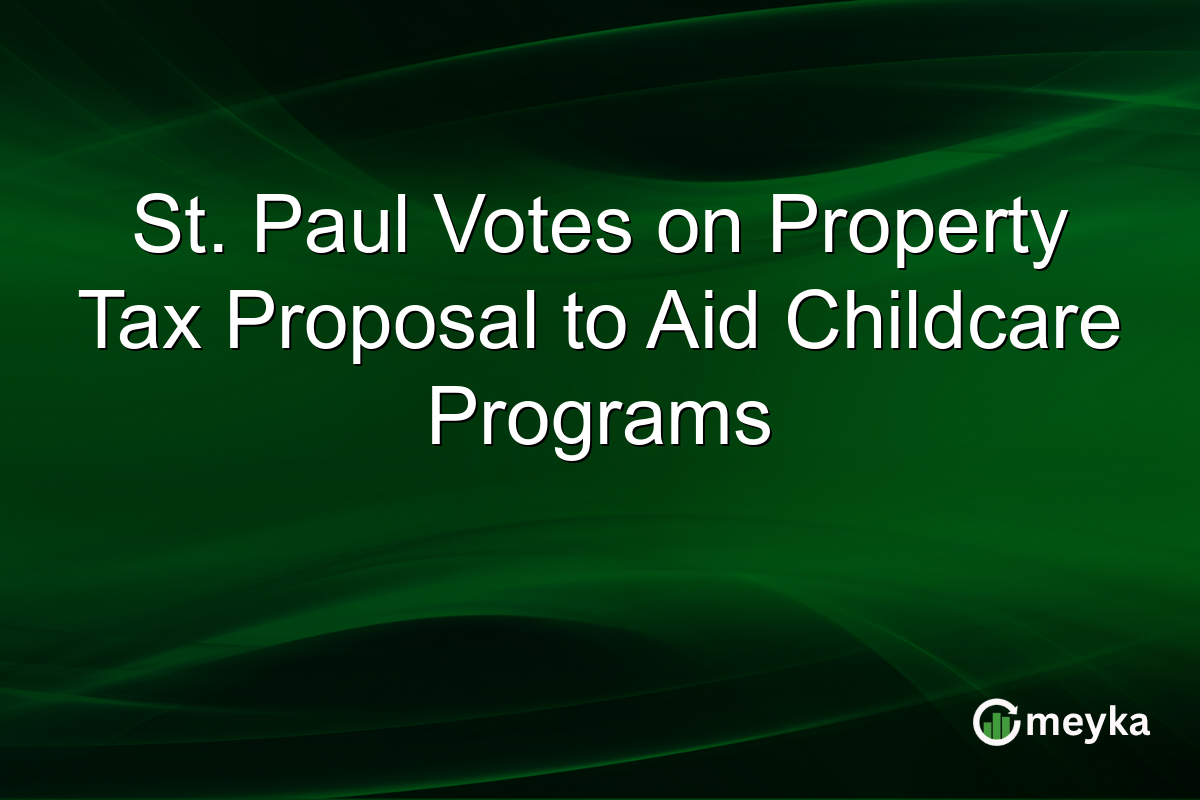St. Paul Votes on Property Tax Proposal to Aid Childcare Programs
St. Paul voters are poised to decide on a property tax proposal aimed at subsidizing childcare programs for low-income families. This initiative emerges as a key effort to counteract the escalating childcare costs in Minnesota, which have become a significant burden for many families. The outcome could set a precedent for similar municipalities grappling with economic challenges and underscore the government’s role in shaping local economies through policy.
Understanding the Property Tax Proposal
The proposed property tax increase in St. Paul seeks to generate additional revenue specifically earmarked for childcare subsidies. At a time when childcare costs have surged by over 30% in the past five years in Minnesota, this funding aims to ease the financial burden on households earning below the state median income.
The tax is set to incrementally rise, reflecting a modest impact on property owners but providing substantial assistance to families in need. By prioritizing early childhood education, St. Paul demonstrates a commitment to long-term economic growth, ensuring parents can remain in the workforce and contribute productively. Latest discussion on the topic on Reddit
Why Childcare Funding is Critical in Minnesota
Minnesota ranks among the highest states for childcare costs, with average monthly expenses reaching $1,200 per child. This financial strain often forces parents to choose between reducing work hours or compromising on childcare quality.
The proposed funding addresses these pressing issues by making high-quality care more accessible. If enacted, it could alleviate some of the economic inequalities exacerbated by high living costs. This move highlights a responsive governmental strategy that prioritizes community needs and seeks to mitigate socio-economic disparities.
Potential Impacts of the St. Paul Childcare Vote
Should the proposal pass, several dynamic changes could unfold across St. Paul. Economically, increased access to affordable childcare would potentially increase workforce participation rates by enabling more parents to seek employment or work additional hours.
This, in turn, could invigorate the local economy with additional labor supply and consumer spending. A successful vote might also inspire other cities to consider similar models, influencing broader governmental policy on childcare funding. The ripple effects could provide a compelling case study on the impacts of localized tax strategies on wider economic health.
Final Thoughts
In conclusion, the St. Paul vote on the property tax proposal for childcare funding represents a pivotal moment for local governance and economic development. By aiming to make childcare affordable for low-income families, this initiative could significantly influence workforce dynamics and the local economy. Additionally, passing this measure may serve as a model for other cities facing similar challenges, emphasizing the importance of innovative, community-focused solutions in addressing systemic economic problems. As the vote proceeds, investors and policymakers alike will be watching closely to gauge its outcomes and potential impact on future municipal policies.
FAQs
The proposed tax aims to raise funds to subsidize childcare for low-income families, mitigating the rising costs affecting many households in St. Paul.
Minnesota has some of the highest childcare costs in the nation, with families often paying around $1,200 per month per child, creating significant financial stress.
Passing the vote could increase workforce participation by making childcare more affordable and accessible, potentially boosting local economic growth and reducing economic disparities.
Disclaimer:
This is for information only, not financial advice. Always do your research.






